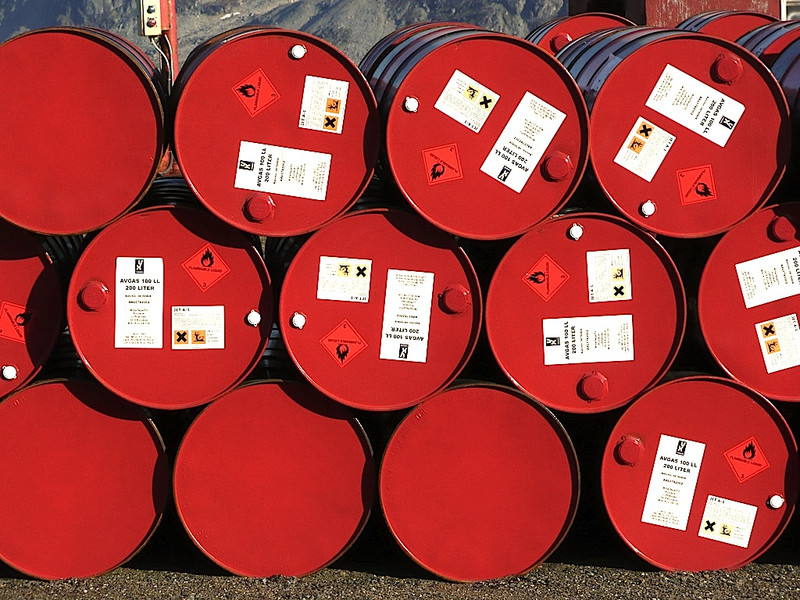Russia is already losing oil income due to the threat of a future EU embargo and there is no evidence of large-scale sanctions evasion, the EU Commission has said.
Some form of oil embargo will “certainly be part of” the upcoming, sixth round of EU sanctions on Russia, Ivo Schmidt, a commission official dealing with the energy sector, told MEPs in a hearing in Brussels on Wednesday (20 April).
This will have a “massive impact” on Russia’s war chest when it comes into force in the near future, he added.
But the Kremlin was “already losing money” on oil sales because “some Russian exports are being rerouted to so-called discounted markets and sold at lower rates” than they would be in Europe as Russia prepares for the EU ban, Schmidt added.
Existing EU sanctions have also seen €200bn of Russian central bank reserves held in EU states frozen, as well as €7bn of assets belonging to some of the 898 Russian individuals and 32 companies blacklisted by Europe, the commission’s Peter Csonka, an official dealing with criminal justice, said the same day.
The faster that EU states implemented laws exposing the real owners of assets hidden behind layers of shell firms, the more the sanctions will bite, he said.
EU states were also looking to confiscate, not just freeze, assets by linking them to law-breaking, such as money laundering, embezzlement, or attempted sanctions evasion, Csonka said.
There had been fears that Russia-friendly countries on the world stage as well as crypto-currency markets might help Moscow to get around EU restrictions on its financial sector.
But the commission’s Peter Grasmann, who heads up a unit on sanctions compliance, said there was little evidence that this was the case.
Circumvention was “as far as we can assess, rather limited”, Grasmann told MEPs.
There was “a high degree of compliance” in EU and G7 countries, he said, and “we haven’t seen a smoking gun yet that we could point to of a wide-scale circumvention by third countries of financial sanctions,” he added.
The “market realities” in the crypto-currency sector also meant large-scale circumvention “was not so possible”, Grasmann added.
‘Moral condemnation’
At the same time, more than 600 European or other Western firms had chosen to, partly or wholly, exit the Russian market to show “moral condemnation” of Russia’s aggression in Ukraine, Luc Devigne, a senior official in the EU foreign service, noted.
Over 100 Russian firms have also been downgraded by international ratings firms as a result of the EU measures, making them less investible, the commission experts said.
“We have not had to ask [EU] banks twice to comply with sanctions — they do so and often go beyond,” Grasmann said.
“Of course we can go further,” he said, but the measures so far “have been strong and have been working”.
“They [the Russians] have done a lot since 2014 [when Russia first invaded Ukraine] to shield themselves [from EU and US sanctions] and yet we have come through and inflicted a lot of harm,” Grasmann said.
Going further
The European Parliament hearing was also attended by two Ukrainian MPs — Maria Mezentseva and Olena Khomenko — as well as by Ivan Fedorov, the mayor of the Ukrainian town of Melitopol, who was recently freed from Russian captivity.
The MPs called on the next round of EU sanctions to delist all remaining Russian banks from the Swift international payments system and banning all remaining Russian propaganda outlets from broadcasting in Europe.
EU states should be “expelling Russian ambassadors” and shuttering Russian firms’ offices, Khomenko said.
“So-called [social media] influencers, bloggers, artists, and musicians” from Russia who support the war should be added to EU blacklists, she added.
Anyone directly supporting the Russian regime should be blocked “from enjoying the civilised world”, Mezentseva said.
Witold Waszczykowski, a Polish MEP and former foreign minister, went even further, saying he was disturbed by reports that thousands of Russian tourists were still holidaying in Cyprus and Turkey even though polls showed that 80 percent of Russians backed the war.
All Russian nationals “should be excluded from any kind of activity in our part of Europe” he said.
Ukraine’s prosecution service has so far registered some 6,000 cases of alleged war crimes in coordination with a special taskforce in Eurojust, the EU’s joint judicial body in The Hague, the commission’s Csonka said.
And if Russia was not stopped now, then the same kind of brutality would, before long, be waged against other European countries, Fedorov warned.
“It’s a full-scale war not only against Ukraine, but against the whole civilised world,” he said on Wednesday. And that war “will come to European cities and households” if the Kremlin gets its way, Fedorov said.
By ANDREW RETTMAN
Source: EU Observer



